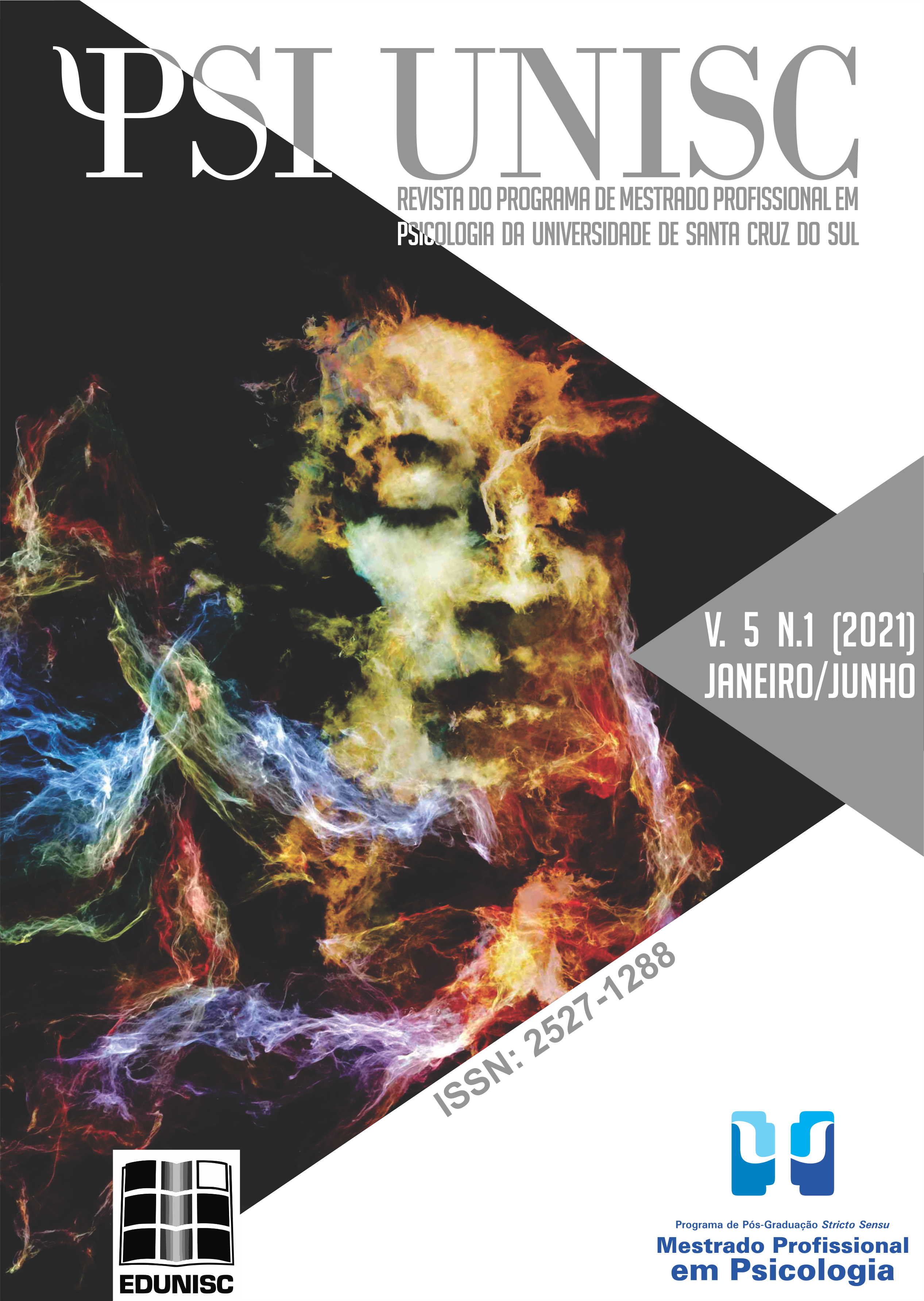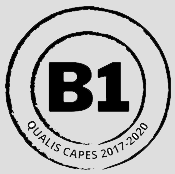The practices of the teachers cribiás: social representations and teacher training
DOI:
https://doi.org/10.17058/psiunisc.v5i1.14929Keywords:
Social representations, Teacher training, Early childhood educationAbstract
The present work describes the social representations on pedagogical practice as well as in contexts which are geared to changes in the field, keep in mind that for those who work in education, the process of teacher training Cribiás, wise children. The project works in order to publicize assumptions of the Historical-cultural Theory in order to guide practice in the context of early childhood education. They were examined for the social attitudes forged in the tensions experienced in the course of the process of the formation of the year by 2019. The study is of a qualitative nature, involving 26 professionals from the education, the participants of the project, they answered a questionnaire with open-ended questions and was applied to groups. The data for the analysis were subjected to interpretative analysis, based on a proposal from the meaning core, reveal that the formative process mobilized tension in the representational field oriented to changes in pedagogical practices in the field of early childhood education. Such changes affect both the cognitive, affective and attitudinal dimension, and may impact the identity constitutions of the professionals involved.
Downloads
References
Aguiar, W. M. J., & Ozella, S. (2006). Núcleos de significação como instrumento para a apreensão da constituição dos sentidos. Psicologia: ciência e profissão, 26(2), 222-245. Recuperado de https://www.scielo.br/scielo.php?pid=S1414-98932006000200006&script=sci_arttext
Andrade, D. B. F. (2007). A criança na educação infantil: por entre Emílias e Chapeuzinhos. Revista de Educação Pública, 16(31), 97-104. Recuperado de http://www.periodicoscientificos.ufmt.br/ojs/index.php/educacaopublica/article/view/5188
André, M. (2013). Etnografia da prática escolar. São Paulo: Papirus editora.
Bauer, M. (1995). A popularização da ciência como imunização cultural a função de resistência das Representações Sociais. In P. Guareschi, & S. Jovchelovitch (Orgs.), Textos em Representações Sociais (183-209). Rio de Janeiro: Editora Vozes.
Bauer, M. W., & Gaskell, G. (1999). Towards a paradigm for research on social representations. Journal for the theory of social behaviour, 29(2), 163-186. doi: 10.1111/1468-5914.00096
Costa, A. C. L. (2020). A formação docente no Projeto Cribiás, crianças sabidas segundo as profissionais da Educação Infantil de Cuiabá-MT: um estudo em representações sociais (Dissertação de Mestrado). Programa de Pós Graduação em Educação, Universidade Federal de Mato Grosso, Cuiabá.
Formosinho, J., & Oliveira-Formosinho, J (2019). Pedagogias transmissivas e pedagogias participativas na escola de massas. In J. Formosinho, Documentação pedagógica e avaliação na educação infantil: um caminho para a transformação (pp. 3-25). Porto Alegre: Penso.
Jodelet, D. (2001). Representações sociais: um domínio em expansão. In D. Jodelet (Ed.), As representações sociais (pp. 31-61, T. B. Mazzotti, trad.). Rio de Janeiro: EDURJ.
Lorensini, S. R. G. (2018). Educação infantil na rede pública de Cuiabá: análise da construção de um projeto cultural para as crianças de até 3 anos, ambiguidades do percurso. (Tese de Doutorado). Programa de Pós Graduação em Educação, Universidade Federal de Mato Grosso, Cuiabá.
Martins, M. A. R., Abdalla, M. F. B., & Silva, A. F. L. (2016). Formação e profissionalidade docente: representações sociais de professores especialistas. In A. Novaes, V. L. Bôas, T. R. Ens (Eds.), Formação e trabalho docente: relações pedagógicas e profissionalidade-pesquisas com a técnica (33-62). Curitiba/São Paulo: PUCPRESS/FCC.
Marková, I. (2017). Mente dialógica: senso comum e ética. Curitiba: Pucpress.
Moliner, P. (1996). Images et représentations sociales: De la théorie des représentations à l'étude des
images sociales (Vol. 12). PUG.
Moscovici, S. (1978). A representação social da psicanálise (Á. Cabral, trad.). Rio de Janeiro: Zahar.
Moscovici, S. (2009). Representações sociais: investigações em psicologia social. Petrópolis, RJ: Editora Vozes.
Nóvoa, A. (1995). Vida de professores. Porto: Porto Editora.
Oliveira-Formosinho, J., & Formosinho, J. (2017). Pedagogia-em-Participação: a documentação pedagógica no âmago da instituição dos direitos da criança no cotidiano. Em Aberto, 30(100). Recuperado de http://rbep.inep.gov.br/ojs3/index.php/emaberto/article/view/3218
Roldão, M. C. (2005). Profissionalidade docente em análise-especificidades dos ensinos superior e não superior. Nuances: estudos sobre educação, 12(13). Recuperado de https://revista.fct.unesp.br/index.php/Nuances/article/view/1692
Sarmento, M. J. (2007). Visibilidade social e estudo da infância. In V. M. R. Vasconcellos & M. J. Sarmento (Orgs.), Infância (In)Visível (25-49). Araraquara: Junqueira & Marin Editores.
Sennett, R. (1990). The Conscience of the Eye: The design and social life of cities. New York: WW Norton & Co.
Vigotski, L. S. (2009). Imaginação e criação na infância. São Paulo: Ática.
Vigotski, L. S. (2010). A questão do meio na pedologia (MP Vinha, trad.). Psicologia USP, 21(4), 681-701. Recuperado de https://core.ac.uk/download/pdf/268308283.pdf
Downloads
Published
How to Cite
Issue
Section
License
The submission of originals to this journal implies the transfer, by the authors, of the printed and digital publication rights. The copyrights for the published articles are those of the author, with periodical rights on the first publication. Authors may only use the same results in other publications clearly indicating this journal as the medium of the original publication. Because we are an open access journal, we allow free use of articles in educational and scientific applications provided the source is cited under the Creative Commons CC-BY license.




